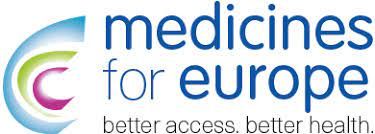Imagine that all 50 states in the United States had different biosimilars policies affecting pricing, usage, availability, promotion, and payer reimbursement. It’s something like that in the European Union, although there are overlapping trends from member member state to member state.
In this first part of a 2-part series, Tony Hagen, senior editor for The Center for Biosimilars®, interviews Adrian van den Hoven, director general for Medicines for Europe, and Diogo Piedade, market access manager for Medicines for Europe, about findings from the group’s recent European survey of biosimilar markets: Market Review—Biosimilar Medicine Markets.
The report elucidates policy variation and biosimilar penetration across EU markets. The biosimilar dispersal is not uniform, van den Hoven and Piedade explain. In the case of insulin, where competition is strong, biosimilar versions may be left out of the game.
In the United States, biologics producers have freedom to set their own prices, and the amount and type of competition may influence the discounts on biologics that are seen; but in the European Union price regulation is more often the norm, and competition between producers adds another level of discounting that results in the true cost, market by market, van den Hoven and Piedade explain.
The discussion also touches on the practice of reference pricing. In the European Union, drug reimbursement is sometimes pegged to a common value that is established through competition among producers. This is known as reference pricing.
Adrian van den Hoven, on EU market tenders
The concern we have is will the losers of those tenders return to the market 3, 4 years down the road? Or will they just give up on the market for that product altogether? There are costs associated with you staying in the market, even if you're not selling.
However, this practice can lead to unsustainably low prices, van den Hoven and Piedade explain. They provide a few different examples of how producers have been affected, along with recommendations for improvement.
They also provide insight on the pros and cons of the length of the contracts, or tenders, producers receive to supply their biologics to EU markets. Longer tenders provide companies with a stable revenue flow, but these may outlast other producers’ staying power, or willingness to return for the next tender opening and bid to supply their own products.

